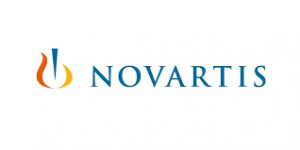
Portfolio Manager Alex Ruehle of Denver Investments says Swiss pharmaceutical company Novartis AG (ADR) (NYSE:NVS) is where investors can find both income and stability, with dividends expected to grow nearly 16% over the next five years.
Novartis maintains strong competitive positions across several key therapeutic areas, providing meaningful cash generation and diversification to their business. These areas are branded pharmaceuticals, generic pharmaceuticals, eye care and consumer products.
The company controls one of the best product pipelines in all of the pharmaceutical industry, which is underappreciated by the market. In contrast with other pharmaceutical companies, they have relatively limited exposure to patent expirations.
Additionally, management has strived to create a nimble, small-company culture despite the size of the organization. This has enabled them to realize efficiencies and reduce management tiers. Currently, Novartis presents a 3.5% dividend yield, and our analysts forecast that their strong cash generation should support 16% dividend growth over the next five years.

Dallas Webb says his firm focuses on long-term investing in the biotech sector. Mr. Webb says that right now in the space there is a lot of focus on the immune-oncology space, which is harnessing the body’s own immune response to help fight cancers. He is seeing really interesting clinical data on that front. Mr. Webb says the other big topic is drug pricing control from the government. He aims to invest in companies that are developing truly innovative science and truly innovative drugs, and highlights several companies he finds interesting.
Full interview available here.
Alex Ruehle talks about his firm’s Global Large Cap Dividend fund. Mr. Ruehle says this fund is for investors that want income but also downside protection for when markets decline. The firm does this by diversifying holdings globally. Mr. Ruehle invests in some of the best companies in the world, and focuses on their ability and willingness to grow their dividends in the future.
Full interview available here.
Managing Director Don Wordell of Ceredex Value Advisors says Pioneer Natural Resources (NYSE:PXD) has been able to generate returns even with lower oil prices, and will grow faster than its peers as oil prices rise in the future.
This is a company that is in E&P, which is exploration and production. This is a company that drills for oil, primarily in the Permian Basin, which is in Texas.
This company has a very attractive cost base, meaning they are a very low-cost producer. Even earlier this year, when oil prices were well-below where they are now, in the $20s, Pioneer was still able to generate returns that were above their cost of capital.
So Pioneer has the three things that we think you have to have to invest in an energy company: good rock, so that means they have reserves and a great piece of land to drill on. You have to have good management, which this team has, having been around a long time and proven themselves. You need to have a great balance sheet, which this company has. I believe it’s really close to net debt zero. So they’re not in a big over-levered position.
So that’s why we really like Pioneer because we think that, over the next two years, at $46 oil here, and as the strip moves out and you look out further, you can see $50, $60 oil over the next two years, they’re going to be able to generate returns and grow faster than any of their peers.
Adam Eagleston discusses his firm’s Small Cap Value Plus strategy. Mr. Eagleston says the strategy is for clients who need small-cap exposure but a higher level of dividend income. He uses active management with an approach that’s rooted in fundamental research, and focuses on high quality and low valuation. Mr. Eagleston shares which stocks he finds interesting at the moment.
Full interview available here.
Don Wordell discusses Ceredex Value Advisors LLC. Mr. Wordell manages the firm’s Mid-Cap Value Equity strategy, and every stock in the portfolio pays a dividend. He likes dividend-paying companies for three reasons: Dividends are an important source of total return; historically, the companies have lower volatility; and dividends promote financial transparency and discipline. Also, according to Mr. Wordell, for investors looking for income, many of the stocks in the portfolio have dividend yields greater than the 10-year Treasury bond. In addition to finding companies that pay dividends, Mr. Wordell wants companies with attractive valuations and solid fundamental catalysts.
Full interview available here.
Analysts say fundamentals in the life sciences industry are good, but macro events could create an overhang. There has been a large amount of M&A recently, with a potential for more upside in the sector. One of the areas some analysts are concerned about is the FDA, as they say there are areas of unmet need where the FDA could reduce their statistical requirements. Other analysts, however, say working with the FDA has generally become easier, as they’ve been trying to foster innovation.
Medical devices have been a relatively good space for the lat couple of years, according to analysts, although there was a period when they were out of favor. There was more regulation than in the past, but investors have become more comfortable with this and recognized that there are good franchises in the space. The transcatheter valve space is one of the bigger categories that has emerged, and there are many companies in diabetes, but analysts think the market is large enough to support them. They also mention the sleep-apnea reimbursement rates have come down substantially.
Full report available here.
Health care IT companies have already mostly digitized medical records, and analysts say the electronic medical record business has largely matured. Although the digitizing of medical records and creating and implementing platforms that would facilitate their use was an important capital expenditure for hospitals and physicians’ offices throughout the country, analysts are now focusing on other parts of the value chain.
The focus has shifted toward analytics, a fast-growing area that could give care providers new insights on how to optimize health care. Optimizing health care is becoming more important now that the shift in reimbursement practices is moving toward a value-based system rather than a pay-per-service model. Care providers are also spending increasing amounts on education technologies, because a more educated workforce can improve performance and the quality of care, as well as reducing some costs on the longer run, allowing hospitals to keep a larger piece of the reimbursement pie. Although hospitals have tended to be conservative on the capex front lately and have had tight budgets, analysts say they do spend on measures that deliver a high return on capital.
On the regulatory front, analysts say the Affordable Care Act is important, but the Medicare Access and CHIP Reauthorization Act of 2015 is also very important, as it’s MACRA that establishes pay-per-value instead of pay-per-service systems. Separately, the 21st Century Cures Act bill would encourage the use of information technology and data in clinical trials approval process.
Information technology in health care is also expanding to other parts of care providers’ organizations. Some companies are providing services to outsource back-office work. Insurance companies have been spending on payment-accuracy services, to make sure they’re not overpaying due to incorrect coding or fraudulent claims. Analysts also say tat if interest rates increase, that would be positive to insurance companies, and they could be spending more on IT services.
Full report available here.
Bryan C. Krug discusses Artisan Partners, a firm that focuses on providing high-value-added strategies to sophisticated investors. Mr. Krug’s investment philosophy is based on core beliefs about the non-investment-grade credit market. He believes the market has dislocations that can be exploited and the best risk-adjusted returns can be found through fundamental credit analysis. When analyzing a potential investment, Mr. Krug focuses on four pillars: business quality, financial strength and flexibility, downside analysis and value identification, which looks at credit improvement potential, relative value and catalysts for business improvement. Using a repeatable, high-conviction process, Mr. Krug constructs his portfolio by investing according to three risk profiles: core, spread tightening and opportunistic.
Full interview available here.
Steven S. Hill discusses Foresters Financial and the Special Situations Fund. This fund focuses on small-cap core stocks. For Mr. Hill, a core stock is one that is not biased to either growth or value. In addition, he defines a special situation as a catalyst that will unlock value and differentiates a stock from its peers. This differs from the fixed income world where a special situation often refers to a bankruptcy or restructuring. Mr. Hill’s approach relies on fundamental analysis, while quantitative analysis is used as a screening and maintenance tool. He allows management to explain the company’s strategy and then makes a judgment as to whether the stock would make a good investment.
Full interview available here.